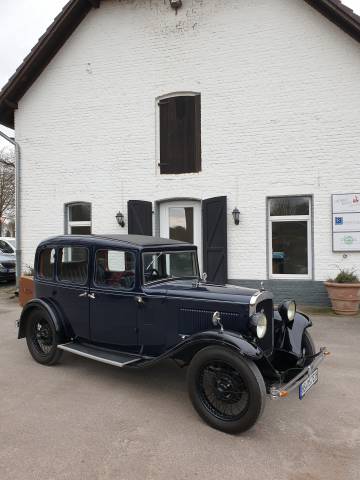Austin 12 Classic Cars for Sale
The Austin 12, produced in England from 1921, is a cornerstone of British motoring history, known for its robust engineering and numerous model variants such as the 12/4 and 12/6. Whether as a right-hand-drive saloon, a rare drophead coupé, or even in Birmingham-built taxi guise, the Twelve embodies the interwar evolution of touring and utility vehicles.
Search results
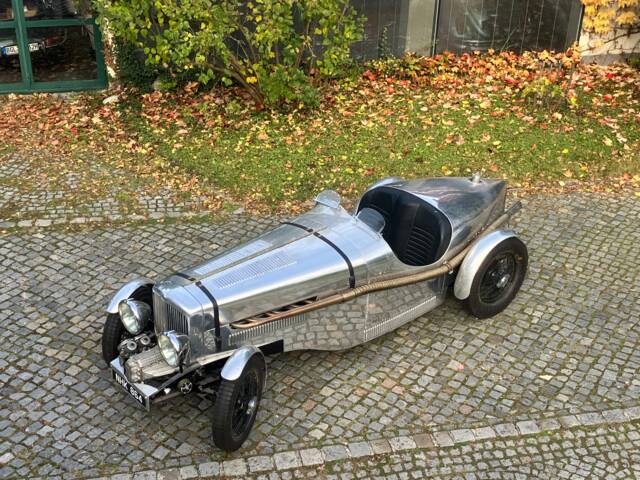
2000 | Austin 12
Austin 12 with 5 Liter Buick straight 8 eingine supercharged
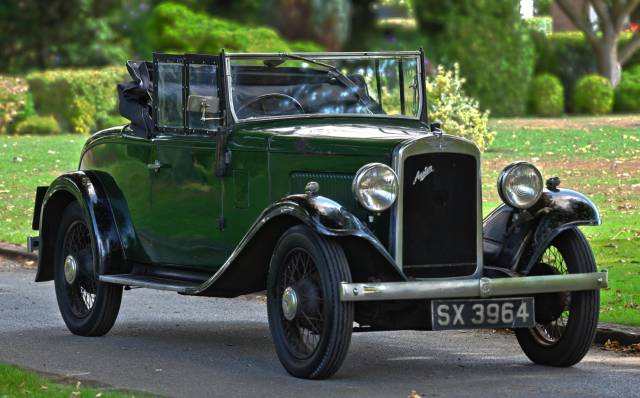
Austin 12 listing references from Classic Trader
Below you will find listings related to your search that are no longer available on Classic Trader. Use this information to gain insight into availability, value trends, and current pricing for a "Austin 12" to make a more informed purchasing decision.
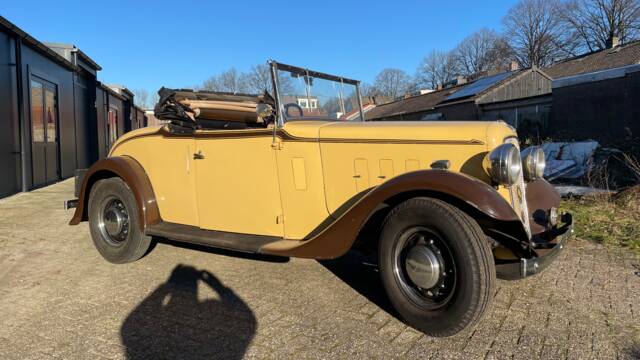
1937 | Austin 12/6
1937 | Austin 12/6 6 cylinder 2 seater DHC Coupe Cabrio, RHD
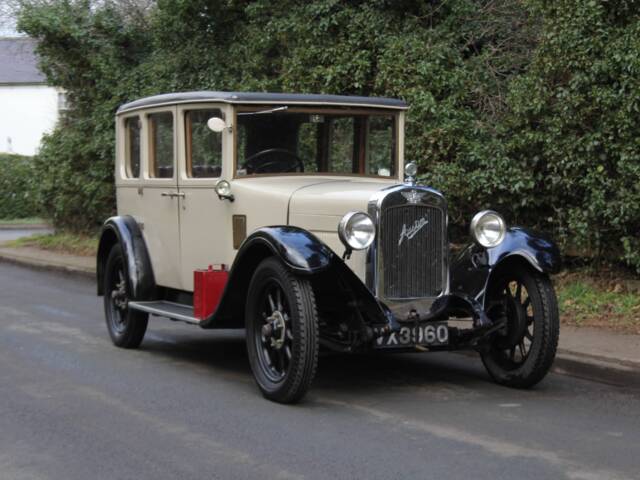
1930 | Austin 12 Burnham
1930 Austin Heavy 12 Burnham Saloon
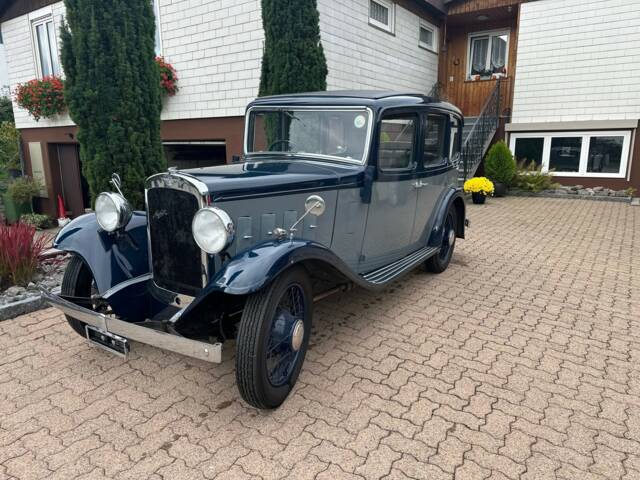
1934 | Austin 12/4
Austin Light
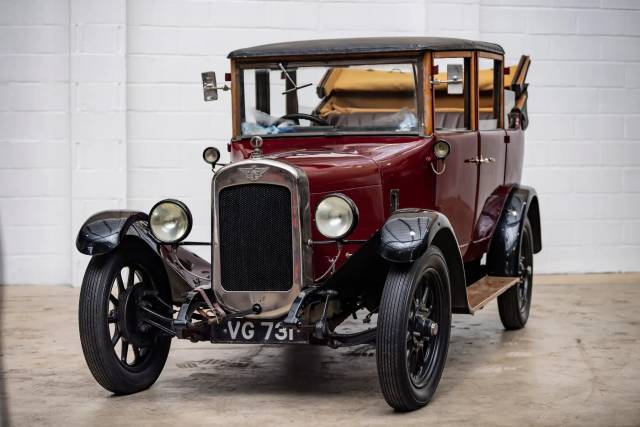
1928 | Austin 12 Burnham
3 Owners From New - Extensively Restored
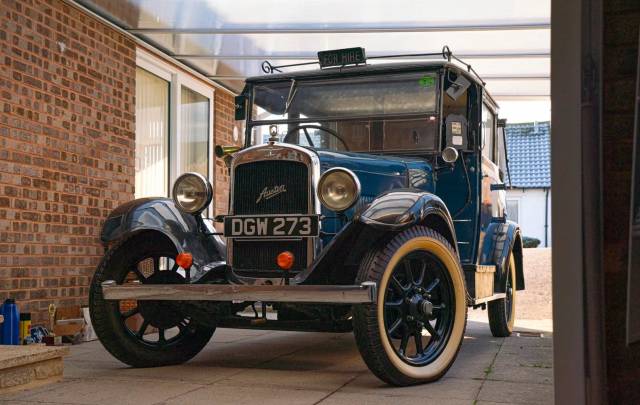
1936 | Austin 12/4 Heavy Low Loader Taxicab
Splendid 30s Motoring - Very Good Throughout
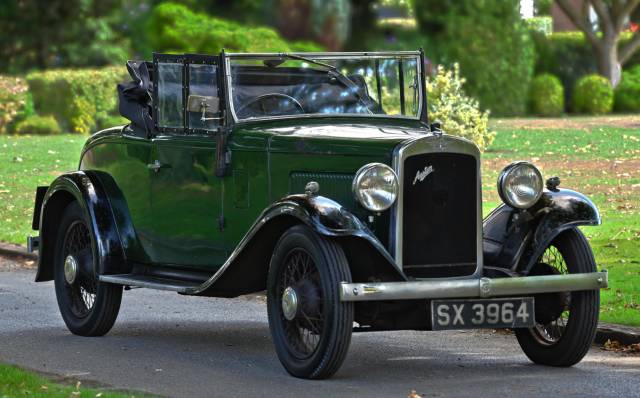
1935 | Austin 12/4 Eaton DHC
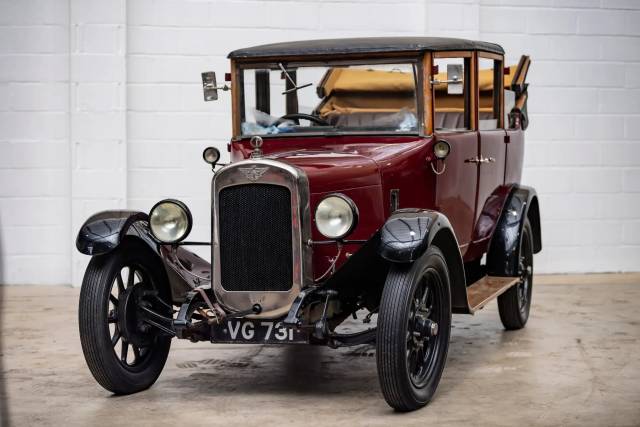
1928 | Austin 12/4
3 Owners From New - Extensively Restored
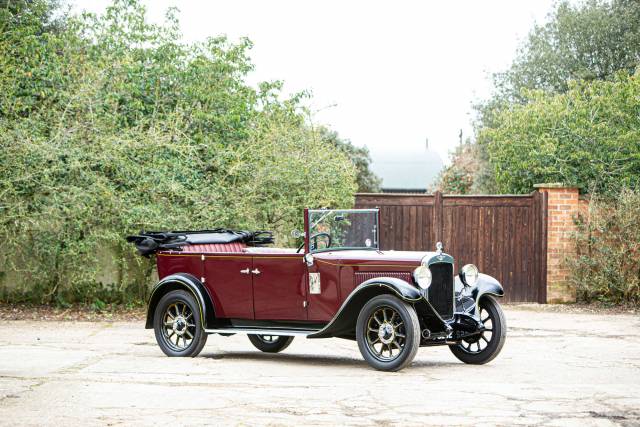
1930 | Austin 12
1930 Austin Heavy Twelve Tourer Deluxe - "Old Min" Bought from Spike Milligan by Peter Sellers
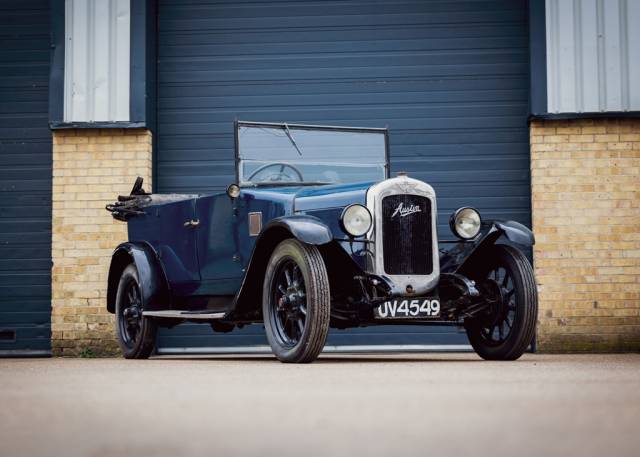
1929 | Austin 12
Austin 12/4 Tourer
1931 | Austin 12/6
Austin Harley 12/6
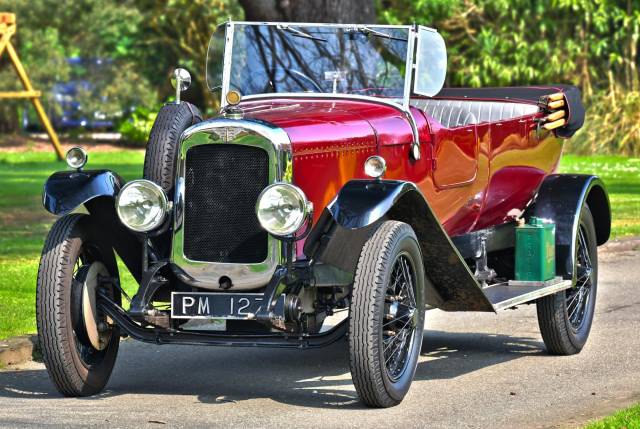
1922 | Austin 12
Austin 12 Classic Cars: Prices & Market Values
History of the Austin 12
Introduced in 1921, the Austin Twelve was Herbert Austin’s direct response to the slow uptake of the larger Austin Twenty. Launched while the company was recovering from financial distress, the Twelve was designed for the British tax regime, as reflected by its fiscal horsepower rating (12.8 HP) rather than its actual output. The initial models, closely linked to the design principles of the Austin Twenty, offered reliable, torquey engines using a long-stroke layout. The Austin 12 saw a broad array of uses, including as London taxis and bespoke cabriolet and saloon variants, with some remaining in use today as both pristine originals and carefully rebuilt vehicles.
Model History
The Austin 12 evolved through various pre-war iterations. Early versions featured a 4-cylinder engine (hence 12/4), with the later 12/6 adopting a 6-cylinder powerplant. Bodywork ranged from saloons to drophead coupés and commercial variants, including taxis constructed in Birmingham. Many carried features now synonymous with the era, such as right-hand drive setups and robust but simple mechanical gearboxes. Predecessors included earlier Austin saloon cars, while post-war, the template of the 12 saw the broader Austin line diversify.
Key Features and Market Share
Notable variants included the 12/4 and rarer 12/6, saloons, taxis, and open-top drophead coupés. Reproduction and original bodies were sometimes constructed from aluminium, with some finished in natural, unpainted metal. Typical epoch features were cab-friendly fire extinguishers, interior illumination, angled rear footrests, door-mounted ashtrays, and a selection of original accessories. The Austin 12’s tooling and design documents are often still found with well-preserved examples, including period tax discs and registration paperwork.
Technical Data
Special Editions and Rare Models
The rare Austin 12/6, distinguished by its 6-cylinder engine, is especially noteworthy, with some types reportedly present as single known examples within Germany. Additionally, drophead coupé versions, some rebuilt on Austin truck chassis or featuring bespoke hand-built aluminium bodies, are prized by collectors for their historical authenticity and engineering uniqueness.
Performance, Engine, and Handling
Early Twelves delivered a mechanical simplicity, with long-stroke engines providing robust performance at low revs. The combination of manual gearbox and drum brakes reflected best practices of 1920s- and 1930s-era technology. Driving dynamics are distinctly pre-war, prioritising torque and reliability over high speeds. Retrofit examples exist featuring non-original engines (e.g., Buick, Ford), but original specifications emphasise robustness and mechanical accessibility. - Austin 12/4: 4-cylinder, known for torque and reliability.
- Austin 12/6: 6-cylinder, very rare, occasionally seen in right-hand drive saloon form.
- Austin 12 DHC (Drophead Coupé): rare open-topped layout, often rebuilt for show.
- Birmingham taxi: robust chassis, cab features, historically significant as early city transport.
Interior, Comfort, Exterior and Design
Design elements on the Austin 12 highlight the transition from utilitarian engineering to touches of luxury—such as door-mounted ashtrays, cabin illumination, and rear seat passenger comfort like angled footrests. Hand-built aluminium bodies were both lighter and emblematic of craftsmanship, occasionally left unpainted for a unique finish. Factory-original documentation, including tools and user manuals, were standard, and period-correct, right-hand drive configuration was almost universal. Accessories include opening roofs and special seating solutions (like the Dickey seat for cabriolet variants), while some models offered rare two-tone or unpainted aluminium exterior treatments.
Other Details
Some surviving Austin 12s remain registered with original British number plates and maintain complete documentation, enhancing their provenance and appeal. Rarely, unique models or one-offs surface, particularly among the commercial and drophead variants.
Summary
The Austin 12 represents a study in evolution from practical engineering to period luxury, with most models reflecting the social and technological realities of pre-war Britain. Its continued presence in the classic market is marked by strong listing and viewing numbers, wide variety in type and specification, and a robust supply of period-correct and thoughtfully restored vehicles.


